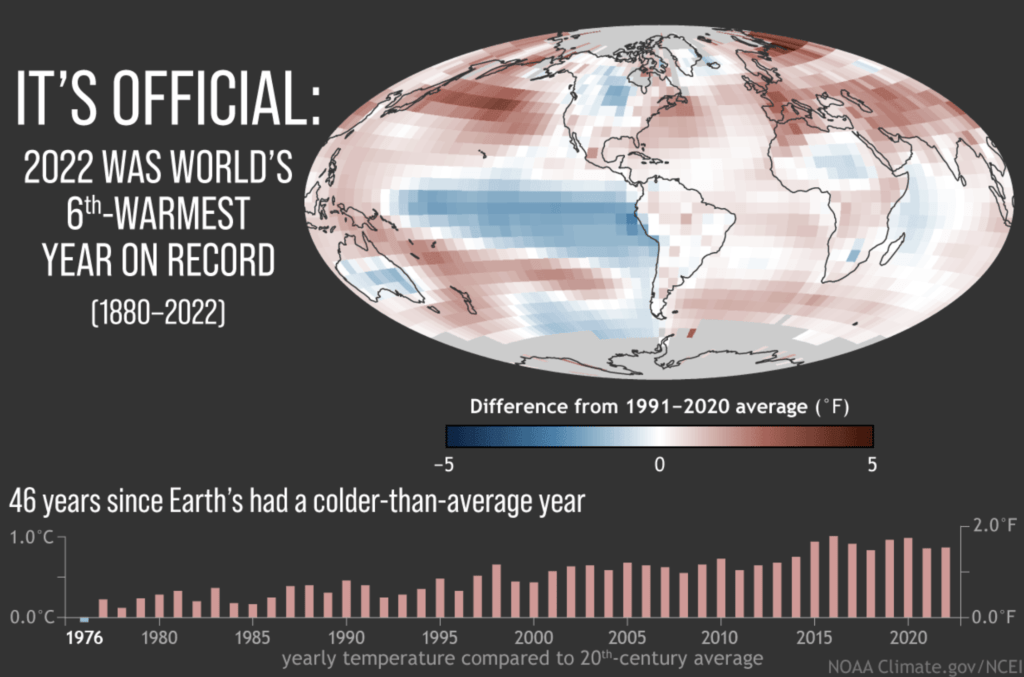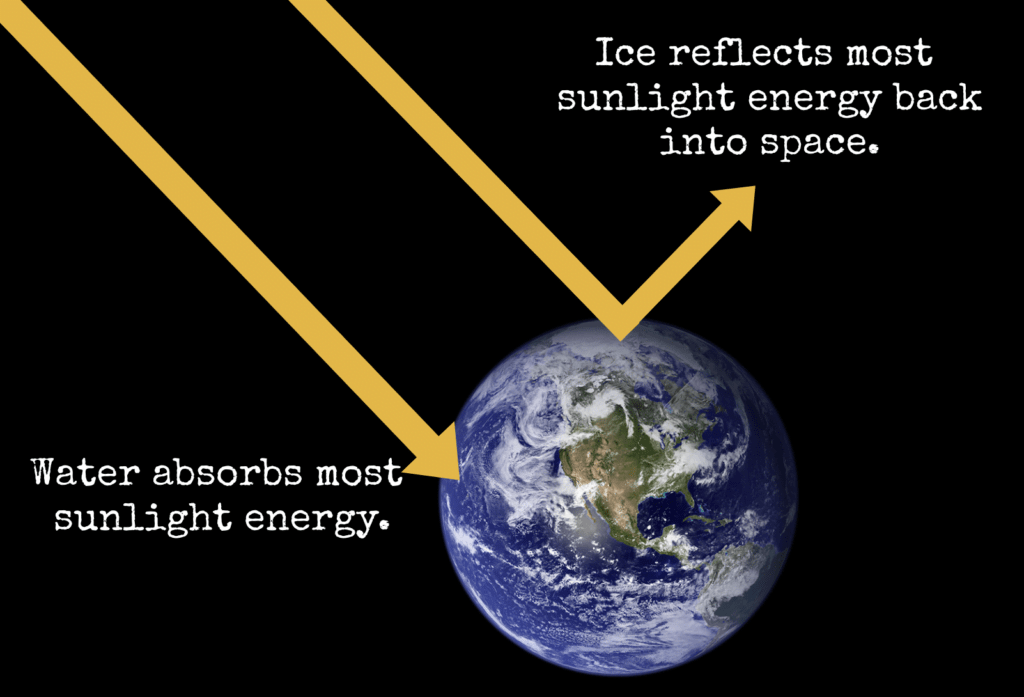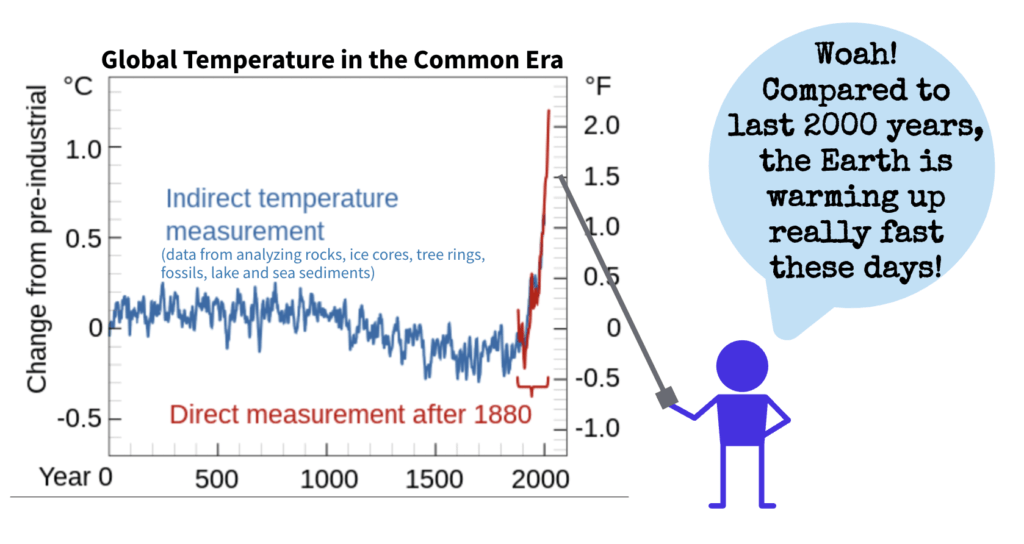BELLRINGERS
ESS3: Earth and Human Activity
MS ESS3-5
Factors that have Caused the Rise in Global Temperatures
Common Misconceptions
These misconceptions were identified by AI ChatGPT.
Global warming is not real: This is not true. The overwhelming majority of scientific evidence shows that the Earth’s temperature is increasing and that human activity is the primary cause.
Global warming is caused by natural cycles: While the Earth’s climate does go through natural cycles, such as ice ages, the current warming trend is not part of a natural cycle. The rate and magnitude of warming is not consistent with natural variability.
The sun is the primary cause of global warming: While the sun plays a role in the Earth’s climate, it is not the primary cause of global warming. The sun’s energy output has been relatively constant over the past century, while the Earth’s temperature has been rising.
Global warming will only have a minor impact on the Earth: This is not true. Global warming is already causing significant changes to the Earth’s climate, including rising sea levels, more extreme weather events, and disruptions to ecosystems. These changes will have severe impacts on human society and the natural world.

2022 was the world’s 6th warmest year between 1880 and 2022.
Earth’s global temperature is increasing.
Describe at least 2 ways that this increase in temperature affects life on Earth.
Common Misconceptions
These misconceptions were identified by AI ChatGPT.
Global warming is not real: This is not true. The overwhelming majority of scientific evidence shows that the Earth’s temperature is increasing and that human activity is the primary cause.
Global warming is caused by natural cycles: While the Earth’s climate does go through natural cycles, such as ice ages, the current warming trend is not part of a natural cycle. The rate and magnitude of warming is not consistent with natural variability.
The sun is the primary cause of global warming: While the sun plays a role in the Earth’s climate, it is not the primary cause of global warming. The sun’s energy output has been relatively constant over the past century, while the Earth’s temperature has been rising.
Global warming will only have a minor impact on the Earth: This is not true. Global warming is already causing significant changes to the Earth’s climate, including rising sea levels, more extreme weather events, and disruptions to ecosystems. These changes will have severe impacts on human society and the natural world.

Scientists have determined that the rapid melting rate of Arctic sea ice is a result of global warming.
How do you think this rapid ice melt will affect people?
Common Misconceptions
These misconceptions were identified by AI ChatGPT.
Global warming is not real: This is not true. The overwhelming majority of scientific evidence shows that the Earth’s temperature is increasing and that human activity is the primary cause.
Global warming is caused by natural cycles: While the Earth’s climate does go through natural cycles, such as ice ages, the current warming trend is not part of a natural cycle. The rate and magnitude of warming is not consistent with natural variability.
The sun is the primary cause of global warming: While the sun plays a role in the Earth’s climate, it is not the primary cause of global warming. The sun’s energy output has been relatively constant over the past century, while the Earth’s temperature has been rising.
Global warming will only have a minor impact on the Earth: This is not true. Global warming is already causing significant changes to the Earth’s climate, including rising sea levels, more extreme weather events, and disruptions to ecosystems. These changes will have severe impacts on human society and the natural world.

When polar ice melts, there’s less ice to reflect sunlight energy
and more water to absorb sunlight energy.
How do you think melting of the ice caps affects the Earth’s global temperatures?
Common Misconceptions
Global warming is not real: This is not true. The overwhelming majority of scientific evidence shows that the Earth’s temperature is increasing and that human activity is the primary cause.
Global warming is caused by natural cycles: While the Earth’s climate does go through natural cycles, such as ice ages, the current warming trend is not part of a natural cycle. The rate and magnitude of warming is not consistent with natural variability.
The sun is the primary cause of global warming: While the sun plays a role in the Earth’s climate, it is not the primary cause of global warming. The sun’s energy output has been relatively constant over the past century, while the Earth’s temperature has been rising.
Global warming will only have a minor impact on the Earth: This is not true. Global warming is already causing significant changes to the Earth’s climate, including rising sea levels, more extreme weather events, and disruptions to ecosystems. These changes will have severe impacts on human society and the natural world.

